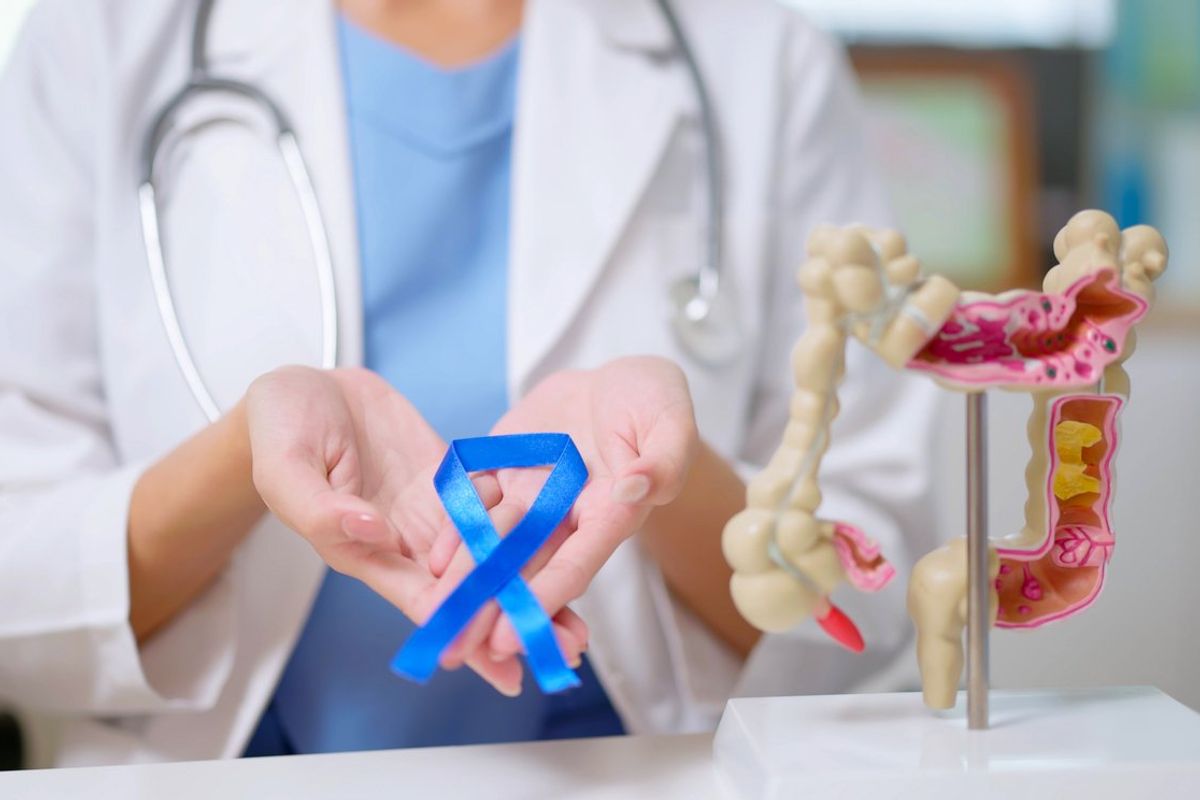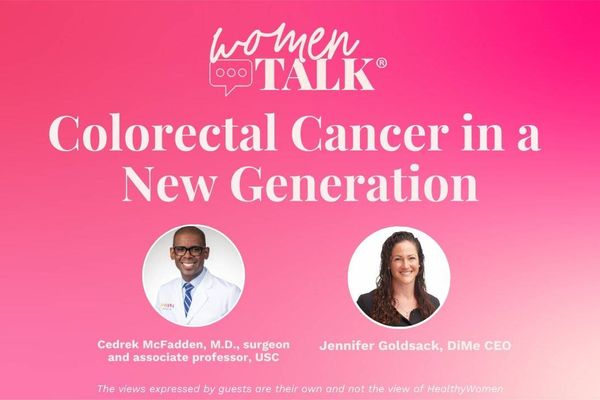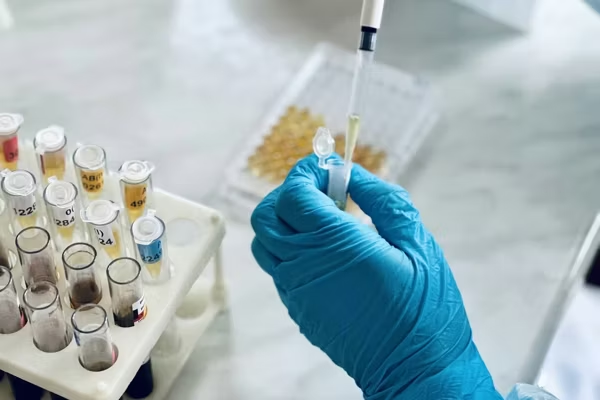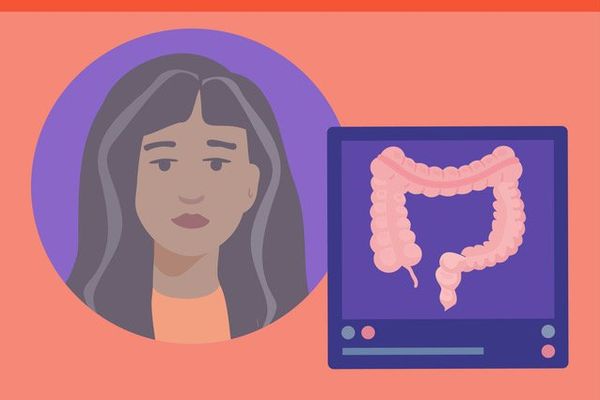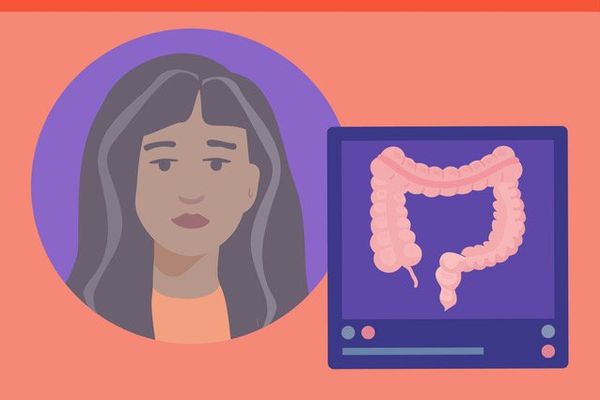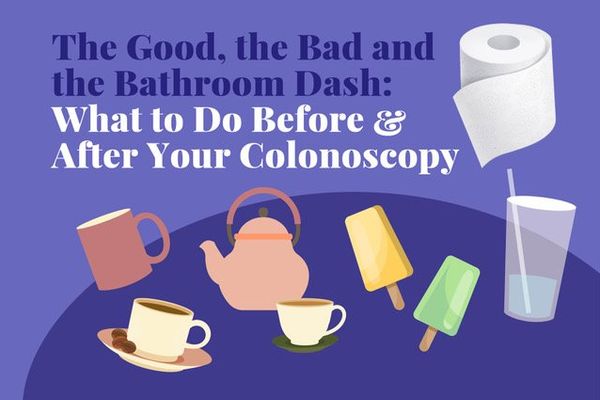Colorectal cancer begins in the colon or the rectum, and is also called colon or rectal cancer, depending on where cancer cells are first found.
The colon is the part of the large intestine that food moves through, and the rectum is the lower part of the colon where waste is stored before it leaves the body, through the anus.
- An estimated 106,000 new cases of colon cancer and 44,850 new cases of rectal cancer will be diagnosed in 2022.
- Risk factors include getting older, diet, obesity, drinking too much alcohol and a family history of cancer.
- Men have a higher rate of colon cancer than women (30% higher) and an even higher rate of rectal cancer than women (60%). Colon cancer is more common in non-Hispanic Black populations and less common in Asian populations.
- When colorectal cancer develops, tumors form on the surface of the colon and rectum and grow into small masses known as polyps. If found early, the polyps can be removed, but if they are not detected early, they can move deeper into tissues, invade lymph nodes and ultimately spread to other parts of the body.
- In recent years, the recommendation for colorectal cancer screening has moved from age 50 to 45, as more younger people have started getting colon cancer. The chances of surviving colorectal cancer are better if the disease is found early when more treatment options are available.
- If you have a family history of colorectal cancer or other risk factors, including having had another cancer, talk to your healthcare provider (HCP) to see what age you should get screened. It could be earlier than 45.
- Lifestyle and diet can reduce your risk of developing colorectal cancer. People can lower their risk by decreasing weight, lowering alcohol intake, quitting smoking, and decreasing the amount of processed food and red meat they eat. Regular exercise also helps reduce the risk of developing colorectal cancer.
- For those who are diagnosed with colorectal cancer, survival rates are based on how far the cancer has spread at the time of diagnosis. The five-year survival rate for early-stage colorectal cancer is more than 90%. The survival rate falls once the disease has spread.
- Colorectal cancer may not cause symptoms at first, but patients should see their HCP if they notice symptoms such as diarrhea, constipation or narrowing of the stool that lasts for more than a few days; rectal bleeding; blood in their stool; cramping or abdominal pain; weakness and fatigue; or unexplained weight loss.
- There are several ways to screen for colorectal cancer, including detecting blood in the stool, measuring DNA changes in the stool, and direct examination of the colon and rectum using an instrument called a colonoscope. This instrument is inserted into the rectum and is used to examine the colon tissue. It’s also used to biopsy or remove any suspicious areas.
- Colorectal cancer treatment is determined by its stage at diagnosis. Early-stage cancer with no evidence of deep invasion or spread can be treated with surgery alone. Once the disease spreads to lymph nodes, patients are given some type of treatment, such as chemotherapy or immunotherapy, after surgery to lower the risk of it coming back.
- Patients who have advanced disease that has spread to distant organs like the lungs or liver should begin receiving treatment immediately. A patient’s healthcare team will decide the best course of treatment.
- For rectal cancer, patients often receive chemotherapy and radiation before surgery. This process is known as total neoadjuvant therapy or TNT. If those treatments remove the cancer, some patients might not need surgery at all. Even when surgery is needed,TNT can help improve patient outcomes and survival rates from cancer.
- Researchers are working to improve future colorectal cancer treatments by measuring each patient's cancer cells to determine how well their current treatments worked and make adjustments if needed. HCPs usually remove the cancer cells during a biopsy or before surgery.
- Colorectal cancer doesn’t have to be a death sentence. Making healthy lifestyle changes, getting screened regularly and working closely with your healthcare team to develop a treatment plan can increase your chances of long-term survival from the disease.
This resource was created with support from Merck.
From Your Site Articles
- Signs You Should Get a Colonoscopy - HealthyWomen ›
- 10 Things Every Woman Should Know About Colon Cancer ... ›
- The Importance of Early Detection for Colorectal Cancer ... ›
- Colon Cancer Screening Options That Aren't a Colonoscopy - HealthyWomen ›
- Who’s Most at Risk for Colorectal Cancer? - HealthyWomen ›
- No If, Ands or Butts: All Things Colon Cancer – Webinar - HealthyWomen ›
- Ask the Expert: Colorectal Cancer - HealthyWomen ›
- Treatment Options for Colon Cancer - HealthyWomen ›
- Facts About Colon Cancer - HealthyWomen ›
- Verdadero o falso: Cáncer de colon - HealthyWomen ›
- Diagnosed at 32 With Colorectal Cancer. - HealthyWomen ›
- We Need to Talk About Colorectal Cancer - HealthyWomen ›
Related Articles Around the Web

